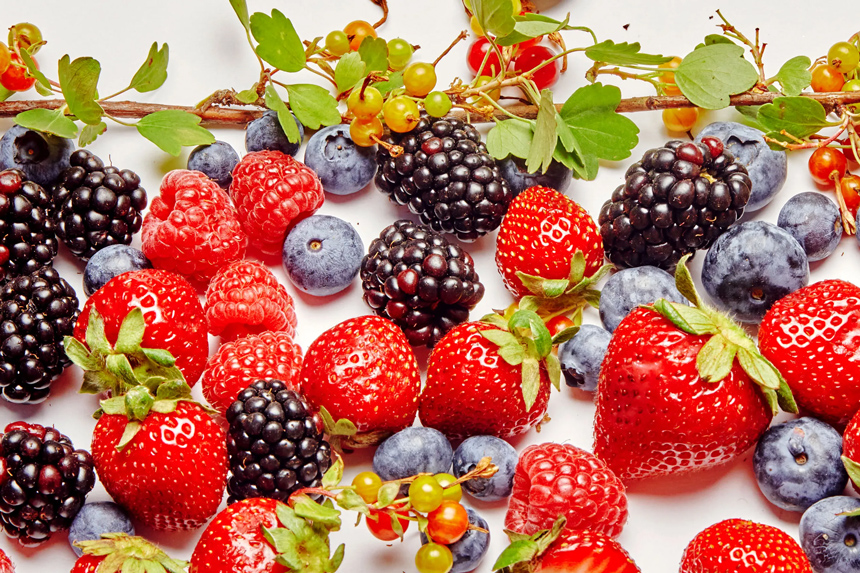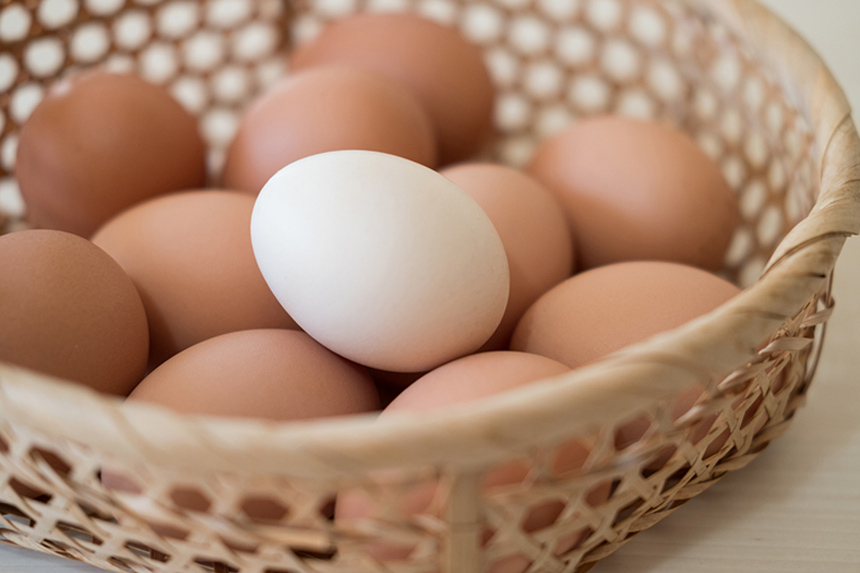Berries

Berries are a delicious source of antioxidants, including anthocyanins, which may help increase nitric oxide levels in the blood and reduce blood vessel constriction. This could potentially lower blood pressure, although more human studies are needed to confirm these effects. Berries such as blueberries, strawberries, and cranberries have explicitly been noted for their heart health benefits.
A 2020 review showed that consuming various types of berries could reduce systolic blood pressure significantly. Incorporating berries into your diet, whether fresh, frozen, or in juice form, is an easy and tasty way to improve your blood pressure and overall heart health potentially. [8]
Eggs

Eggs, once scrutinized for their cholesterol content, have been vindicated by recent studies suggesting they can be part of a diet aimed at managing blood pressure. A 2023 study found that consuming five or more eggs weekly could lead to a slightly lower systolic blood pressure compared to those who ate fewer eggs.[9]
Eggs are a nutrient-dense food, providing high-quality protein and essential vitamins and minerals. Their versatility in cooking—from boiled to scrambled to baked—makes them an easy and nutritious addition to any meal, supporting heart health without compromising on taste.
Carrots

Carrots, with their sweet crunch, are not just for improving vision; they also have compounds that may help manage blood pressure. A 2023 study indicated that consuming approximately 100 grams of carrots daily could reduce the risk of high blood pressure by 10%. [10]
The versatility of carrots, from raw snacks to cooked dishes, makes them an easy addition to a heart-healthy diet. Their high fiber content also supports digestive health, contributing to overall well-being and helping in the management of blood pressure.
Adopting a diet rich in heart-healthy foods is a pivotal step towards managing blood pressure and reducing the risk of heart disease. By incorporating a variety of fruits, vegetables, whole grains, and healthy fats into your diet, you can enjoy delicious meals while benefiting your heart. It’s important to remember that dietary changes should complement, not replace, medical treatments prescribed by healthcare professionals. With mindful eating and lifestyle adjustments, maintaining a healthy blood pressure and a strong heart is an achievable goal for everyone.
Reference:
[1] https://www.ncbi.nlm.nih.gov/books/NBK539859/
[2] https://www.ncbi.nlm.nih.gov/pmc/articles/PMC9238708/
[3] https://www.ncbi.nlm.nih.gov/pmc/articles/PMC7884895/
[4] https://pubmed.ncbi.nlm.nih.gov/33541169/
[5] https://www.sciencedirect.com/science/article/pii/S2161831323002879?via=ihub
[6] https://www.ncbi.nlm.nih.gov/pmc/articles/PMC9356908/
[7] https://www.ncbi.nlm.nih.gov/pmc/articles/PMC7352724/
[8] https://www.ncbi.nlm.nih.gov/pmc/articles/PMC7900084/
[9] https://www.ncbi.nlm.nih.gov/pmc/articles/PMC9920838/
[10] https://link.springer.com/article/10.1007/s00394-023-03145-5





